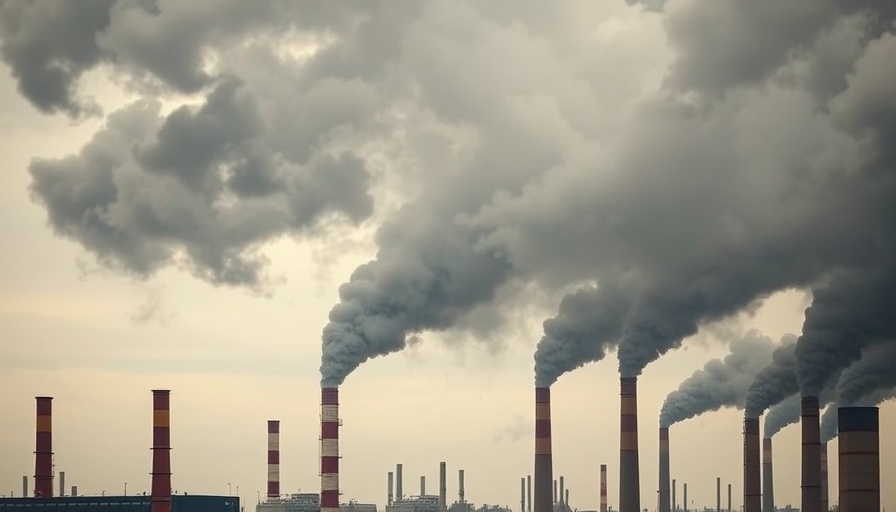
Trump Administration's Major Shift in Environmental Policy
On Wednesday, the Environmental Protection Agency (EPA) announced bold proposals that could significantly alter the landscape of U.S. climate policy. By planning to roll back regulations established during the Biden administration aimed at curbing greenhouse gas emissions from fossil fuel power plants, this move emerges as one of the most profound policy shifts under the Trump administration. The proposed rule changes also seek to relax standards concerning the release of toxic chemicals into the atmosphere.
Understanding the EPA's Justification
According to EPA Administrator Lee Zeldin, the justification for these sweeping changes stems from a belief that previous administrations were pushing fossil fuels “out of existence.” “We’re looking to make energy more accessible and affordable for American families,” Zeldin stated, adding that implementing these new rules could save Americans over a billion dollars annually on electricity bills.
However, critics argue that such relaxations could lead to detrimental environmental impacts. The new regulatory stance downplays the urgent climate challenge posed by greenhouse gas emissions, suggesting that pollution from power plants is only a “small and decreasing part of global emissions.” This raises concerns about whether economic benefits might come at the cost of substantial environmental harm.
Revisiting the Clean Power Plan
The new proposals specifically target emissions standards put in place under President Obama’s Clean Power Plan and later reinforced by President Biden in 2021. These regulations sought extensive reductions in carbon emissions from power plants and were designed to mitigate the impacts of climate change. By rolling back these regulations, the Trump administration is trying to enact what it considers a pro-fossil fuel agenda, side-stepping the climate action efforts that many environmentalists view as essential for long-term sustainability.
The Mercury and Air Toxics Standards
Another significant aspect of the EPA's proposals concerns the Mercury and Air Toxics Standards (MATS), which establish acceptable emission levels for hazardous pollutants like mercury, arsenic, and benzene. Instead of eliminating these standards, the new proposal seeks to revert them back to the 2015 levels, arguing that current demands are excessive. Zeldin described the previous requirements as “gratuitous regulations,” implying that they hinder operational efficiency without adding substantial public health benefits.
The Future of U.S. Climate Policy
As the Trump administration moves forward with these proposals, the backlash from environmental groups and progressive lawmakers could intensify. Many see this as a critical moment where the direction of U.S. climate policy might pivot back towards fossil fuel dependency. This shift could have far-reaching consequences for both national and global efforts to mitigate climate change.
Stakeholders Weigh In
Stakeholders, including environmental NGOs, energy companies, and lawmakers, will likely engage in an extensive public discourse during the notice and comment period preceding any final implementation of these new regulations. Environmental advocates argue that the rollback could endanger public health as it relates to air quality and climate change impacts. In contrast, proponents of the changes emphasize economic revitalization in fossil fuel industries, aiming for energy independence and affordability.
What Lies Ahead?
This proposed shift in environmental policy raises numerous questions about the balance between economic priorities and environmental integrity. It invites citizens to critically assess how such changes could reshape the future of energy in the United States. With public comment periods on policies like these often serving as battlegrounds for contrasting views, the dialogue surrounding these regulations is only beginning.
 Add Row
Add Row  Add
Add 




Write A Comment